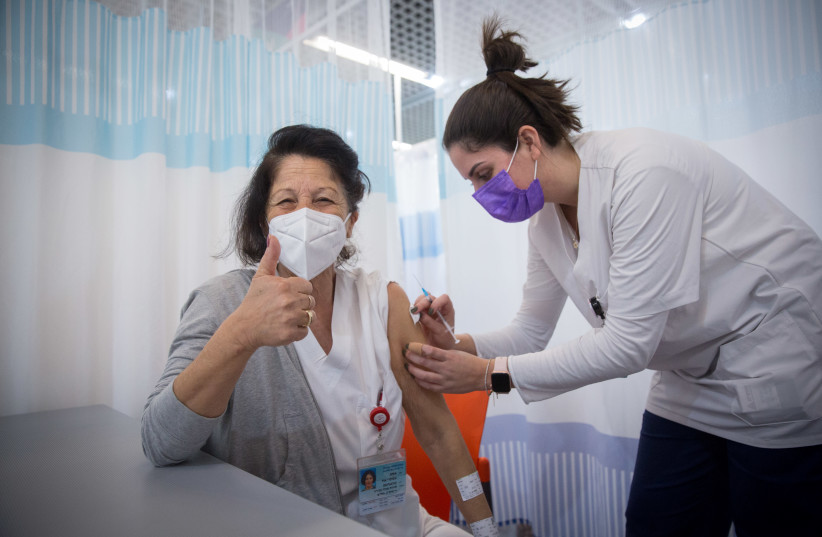“This is the first study assessing effectiveness of a single vaccine dose in real life conditions and shows early effectiveness, even before the second dose was administered.”

Data released by Sheba Medical Center, Tel Hashomer on Friday showed that coronavirus infections were reduced by 75% after the first dose of the Pfizer coronavirus vaccine.
The data, published in the peer-reviewed Lancet medical journal, centered on a study of around 9,000 Sheba healthcare workers, around 7,000 of which received their first dose in January. Sheba’s team found a 75% decrease in all infections and an 85% reduction in symptomatic infections between 15-28 days after vaccination.
According to Prof. Gili Regev-Yochay, director of the hospital’s Infectious Disease Epidemiology Unit, only 170 people became infected during the two week period. Of those who contracted the virus, 99 showed symptoms. Eighty-nine of the sick were unvaccinated.
“In real life, the data looks at least as good as in the clinical trials,” Regev-Yochay said. “The first dose is even more effective than we thought.”
She said the hospital is now completing research on the impact of the second dose, which she said researchers still believe is essential.
However, she noted that the research supports the British government’s decision to spread out the time between the first and second shots of the vaccine in order to inoculate more people.
“This is the first study assessing effectiveness of a single vaccine dose in real life conditions and shows early effectiveness, even before the second dose was administered,” said Prof. Eyal Leshem, director of Sheba’s Travel & Tropical Medicine department.
Several Israeli health funds and researchers have revealed preliminary data from the country’s vaccination campaign. This is the first study published in a peer-reviewed journal.
Regev-Yochay said that additional reports are in the works.
As reported by The Jerusalem Post
